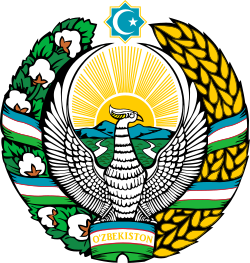
TSUULL Students and Academic Staff Implement a Nationwide Project ‘Yashil Makon’ (Green Space)
TSUULL supported the initiative and joined the National Project ‘Green Space’ by planting 100 pines, 50 fruit and ornamental trees in the courtyard of the University.
It should be noted that the implementation of the National Project ‘Green Space’ was an important step in the protection and restoration of ecosystems, acceleration of greening and expansion of green spaces in the republic. Within the framework of this project, it is planned to increase green areas in cities from the current 8% to 30% by planting 200 million trees and shrubs per year. As the head of our state noted, the national project ‘Green Space’ is not a one-year event. In fact, if we show love and attention to nature today, so that the generation after us can live in a suitable natural environment by keeping our place clean, the future generation will also live in a suitable ecological environment. We need to preserve land and water resources, the ecological system, and plant trees and create a garden.
In 2019, TSUULL set a ‘Save the Planet’ Program for all members of university starting with university staff and students which struggles to achieve that all TSUULL buildings and facilities will be operated in the most energy efficient and integrated manner so that we can focus our energy strategies on constructing and maintaining a university that educates, enriches and engages. Moreover, TSUULL will demonstrate commitment to our community and leadership in our industry by reducing environmental impacts associated with our building energy use.
TSUULL also has a green building management team which addresses the evaluation, operation and maintenance of energy systems in buildings and introduces concepts of alternative and renewable energy sources that allow for efficiency, cost reduction and mitigation of the impact on the environment.
In terms of Actions on Climate Change, TSUULL Annual Green Space Program promotes creating green space by planting a large amount of trees annually on, around and nearby Campuses. The Green Space Movement began its activity on the Main Campus of the university in 2020 and has expanded to all university-owned premises. To date, the Project has planted over 2,000 trees and keeps doing so until it reaches 30,000. The Project was inspired by TSUULL Rector Shuhrat Sirojiddinov and all university staff including himself voluntarily contributes to the goal of the project every season of year.
To educate nations on Climate Change Threads and how to combat its negative effects, TSUULL also facilitates lecture series on Waste Management in the local and regional context. Every Fall Semester TSUULL delivers Waste Management Courses open to the public inviting national and regional experts of the field. The course thoroughly teaches and trains attendees to be able to sort waste out into different categories, how to treat them, in particular waste containing hazardous materials and chemicals aka toxic. Participants are often offered to voluntarily take part in large cleanup operations to help the environment.
TSUULL persistently strives for establishing one of the points of networks on clean energy and climate change. Its goal is to advance innovative solutions to address climate change, to promote clean, novel, ambitious energy system transitions and to find more sustainable ways to live either on or off campus.
In acting towards its sustainable goals, TSUULL facilitates several programs and initiatives. To efficiently accomplish the set goals, TSUULL adheres to its Climate and Energy Action Plan. Within the framework of the Action Plan, TSUULL has mounted solar cells on all buildings' rooftops which to date generate electricity in the amount that meets the 150% of its demand. As a result, the university as well retails excessive energy equal to UZS 100 mln to local electric network enterprises.
Moreover, the University Sustainability Practices Office coordinates the drip-crop watering method to water trees and plants in the field in Akkurgan Campus, in which the water pumps are powered by solar energy.
Credit: TSUULL Press Center




